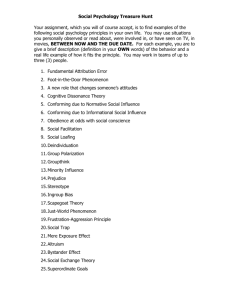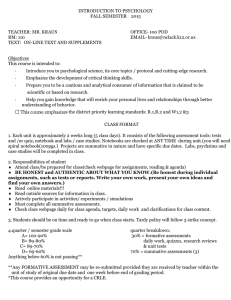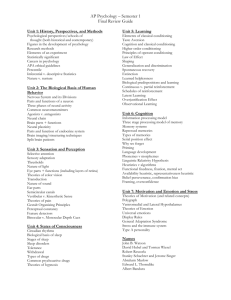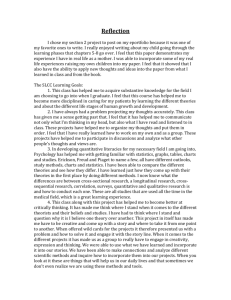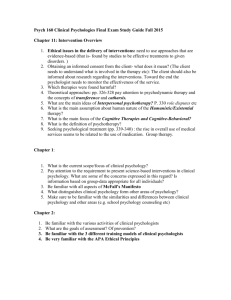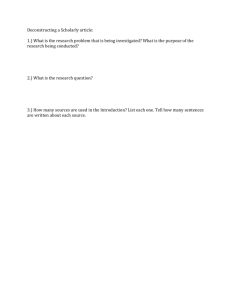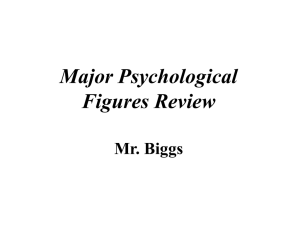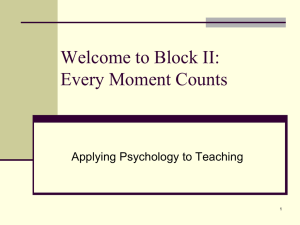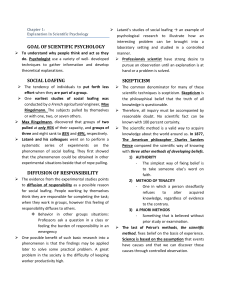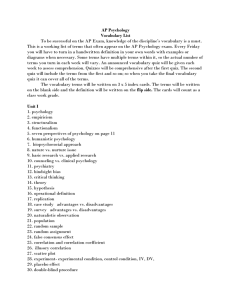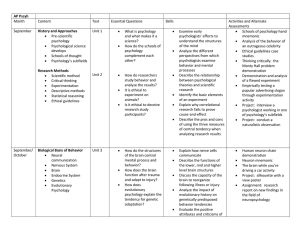Review Guide for Cumulative Exam 2015
advertisement
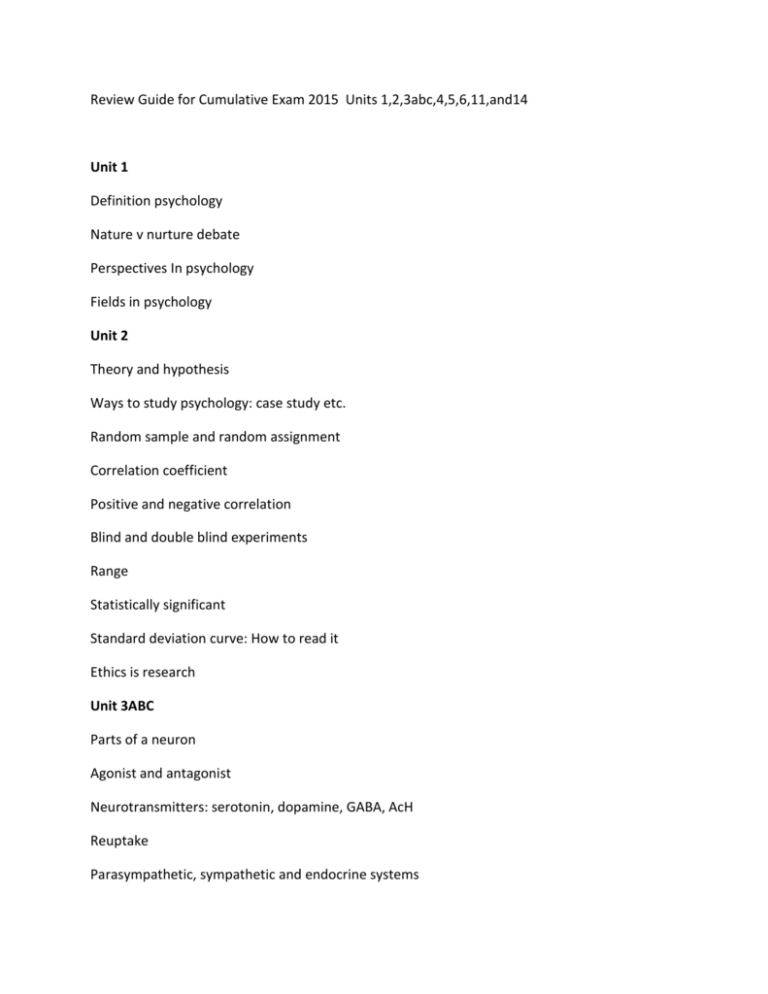
Review Guide for Cumulative Exam 2015 Units 1,2,3abc,4,5,6,11,and14 Unit 1 Definition psychology Nature v nurture debate Perspectives In psychology Fields in psychology Unit 2 Theory and hypothesis Ways to study psychology: case study etc. Random sample and random assignment Correlation coefficient Positive and negative correlation Blind and double blind experiments Range Statistically significant Standard deviation curve: How to read it Ethics is research Unit 3ABC Parts of a neuron Agonist and antagonist Neurotransmitters: serotonin, dopamine, GABA, AcH Reuptake Parasympathetic, sympathetic and endocrine systems Central nervous system Ways to study the brain: Pet scan etc. Glial cells Brain stem Lobes of the brain and major parts: broca’s area etc. Limbic system Split brain studies dual processing Heritability Adopted children and twin studies Unit 4 Definitions: sensation and perception Absolute threshold Weber’s law Subliminal messages Transduction Blind spot Rods and cones The workings of the inner ear ant the parts involved Frequency and pitch theories Sensory interaction Retinal disparity Monocular cues Phi phenomenon Perceptual set Unit 5 Stages of sleep and their characteristics Sleep deprivation Dream theories Dissociation Problems of combining drugs and alcohol Major drugs and their side effects Unit 6 Definition learning Classical conditioning: all terms examples; US, UR, CS,CR, discrimination etc. Terms for operant conditioning Schedules of reinforcement Observational learning Unit 11 Definition of intelligence Theories of intelligence: Spearman, Sternberg and Gardner How to find IQ and mental age Eugenics movement Purpose of achievement tests Reliability, validity and standardization of tests Use of twin and adoption studies in intelligence Flynn effect Self-fulfilling prophecy Unit 14 Situational and dispositional attributions Famous studies: Stanford Prison, Asch and Milgram Chameleon effect Group behavior and terms: social loafing, group think etc. Norms Other race effect Just world phenomenon
